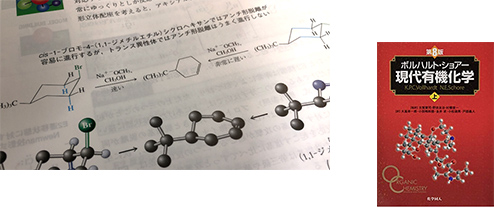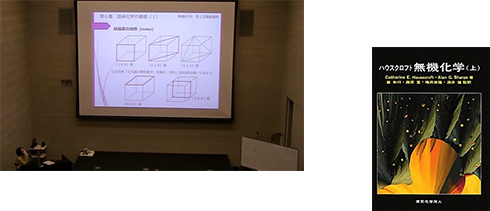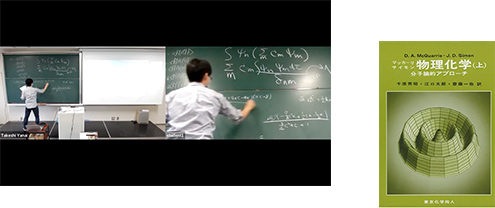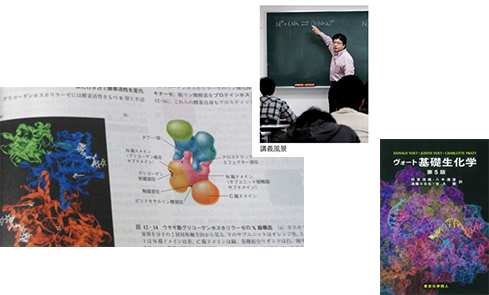Chemical research covers a wide range of fields. In the undergraduate program, comprehensive basic education is provided on various subjects such as organic chemistry, inorganic chemistry, analytical chemistry, physical chemistry, and biochemistry. In the fourth year, students are assigned to research laboratories and engage in advanced research.
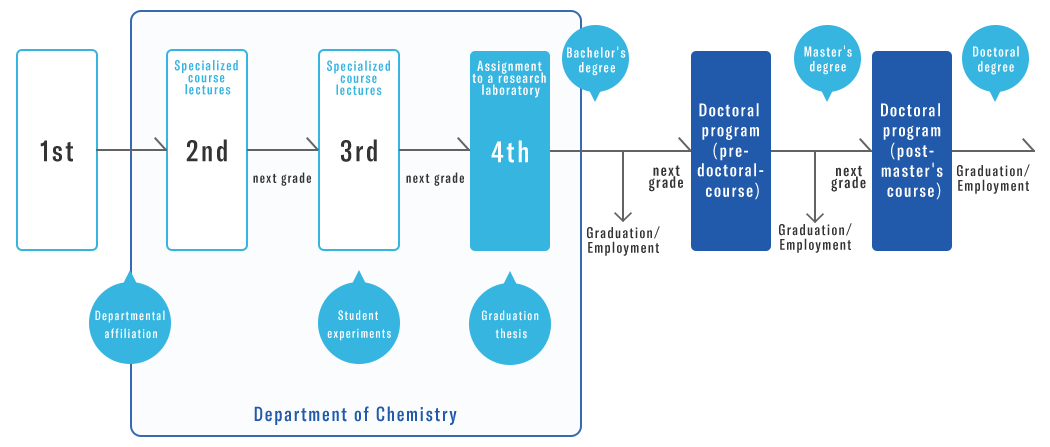
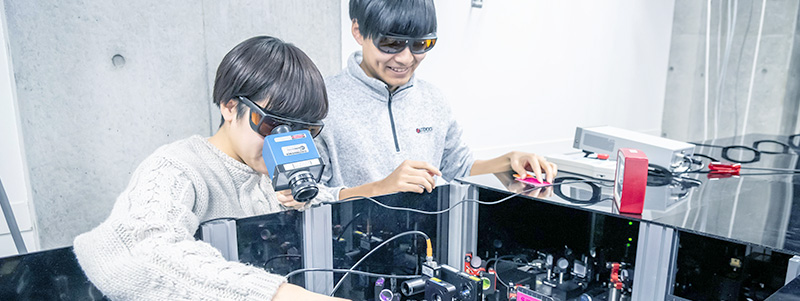
In the Chemistry Department, we gather a wide range of knowledge to address issues related to substances. Therefore, our basic approach is to ensure that students systematically and thoroughly learn chemistry at the university level. We provide education using a wide range of world-standard university textbooks in organic chemistry, inorganic chemistry, physical chemistry, biochemistry, and other subjects, dedicating considerable time to this endeavor.
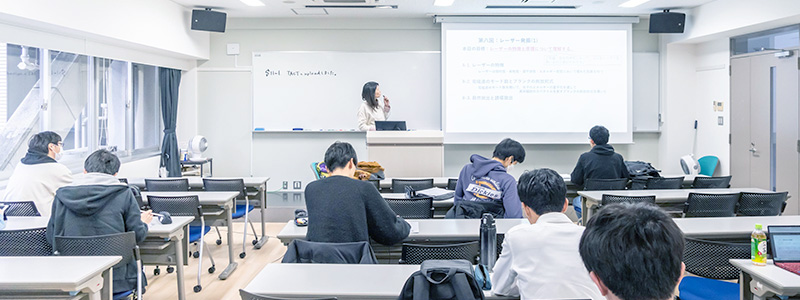
The essence of the chemistry department’s curriculum is the “3rd-year Student Experiment,” a phrase heard from all graduates. From Monday to Friday afternoons, 3rd-year students engage in this student experiment to deepen their understanding of the textbook material. They learn basic attitudes, techniques, and safety precautions for experiments before joining a research laboratory.
In the 3rd Year Student Experiment, students submit reports, which helps them develop the ability to summarize their findings. This skill is also essential in the real world. Therefore, the fundamental principle is to ensure that students systematically and thoroughly learn chemistry at the university level.
- Orientation
- Safety training
- Glasswork practice
- Analytical Chemistry Experiment
- Inorganic Chemistry Experiment
- Organic Chemistry Experiment
- Biochemical Experiment (Biochemistry and Bioinorganic Chemistry)
- Physical Chemistry Experiment (Physical Chemistry, Photo-Physical Chemistry, Quantum Chemistry)
Upon meeting the requirements for advancement to the 4th year, students are assigned to a laboratory based on their preferences. They then engage in a special experiment, commonly known as their graduation research. Under the guidance of a laboratory instructor, they conduct research on specific chemical problems.
This period offers a valuable experience in discovering truths from natural phenomena. From April, they will spend approximately one year in research activities.
At the end of February, they are required to submit a report (graduation thesis) summarizing their year-long research. In early March, an presentation session is held where they orally present their findings.
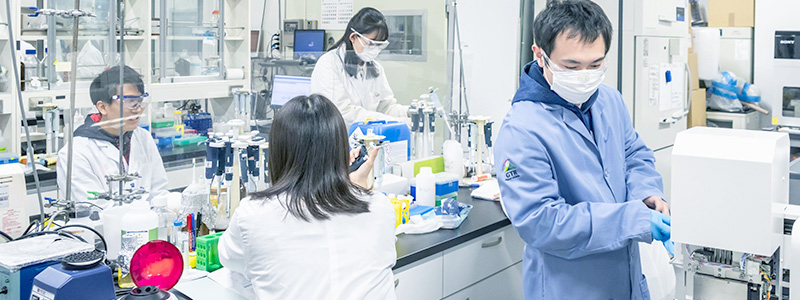
At universities, an online educational support system called TACT (Teaching and Learning Assistance for Chemistry) is provided and utilized in chemistry courses. This system offers convenient ICT environments for distributing electronic materials, submitting reports, and sending questions or messages to instructors.
The Tokai National Higher Education and Research System has entered into a comprehensive licensing agreement with Microsoft, allowing students at Nagoya University to use various software and services included in the agreement.
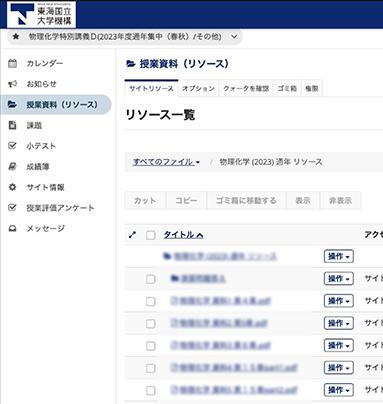 TACT System
TACT System 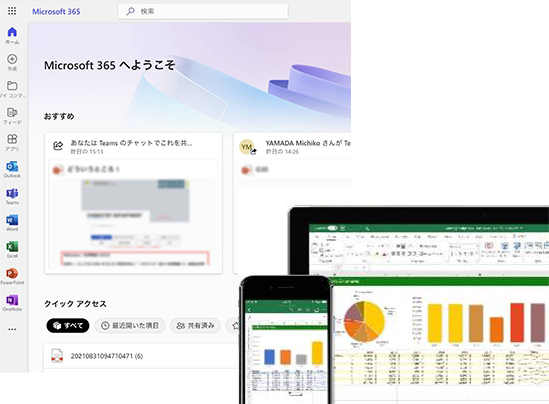 Microsoft 365 services
Microsoft 365 services 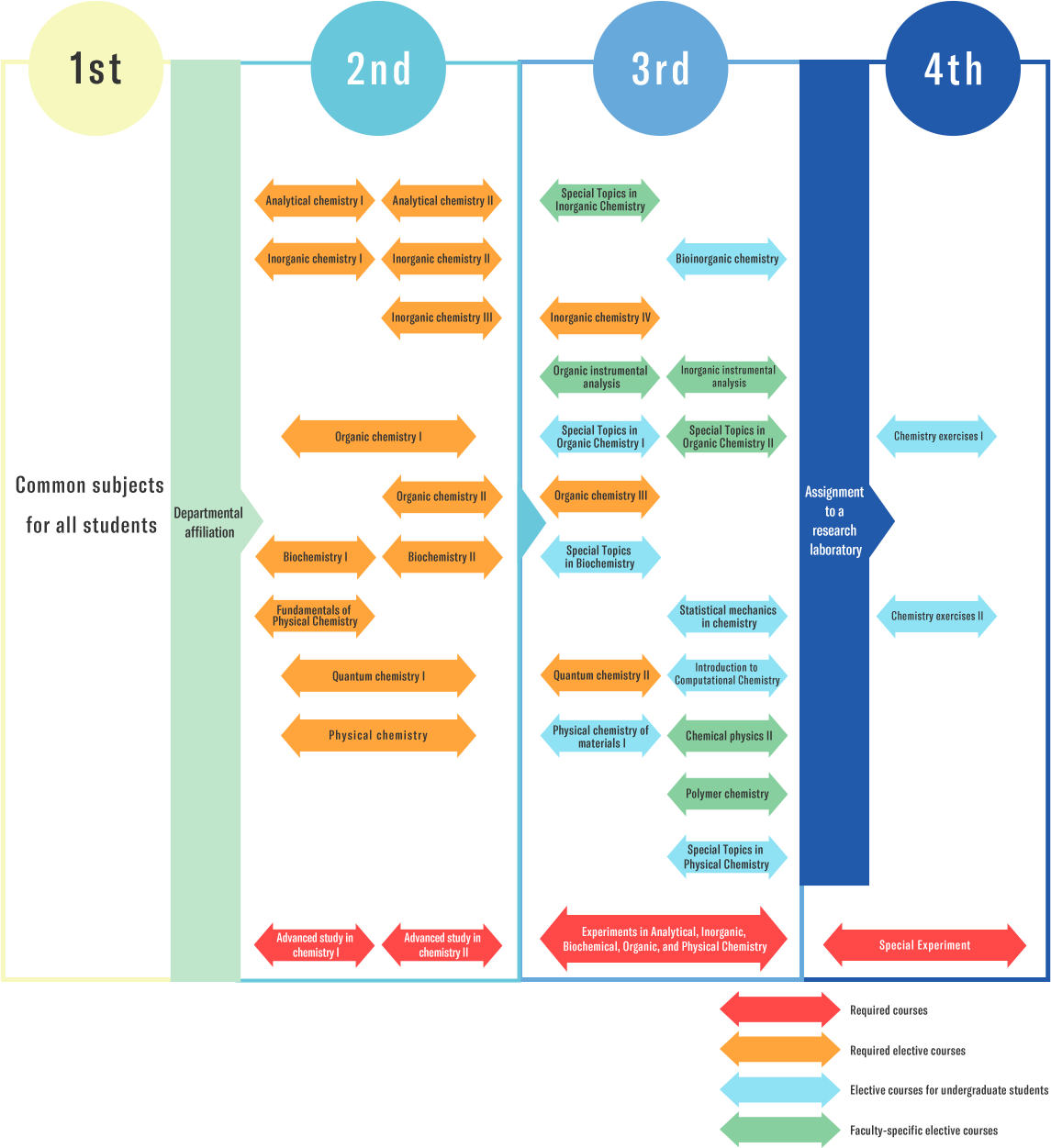
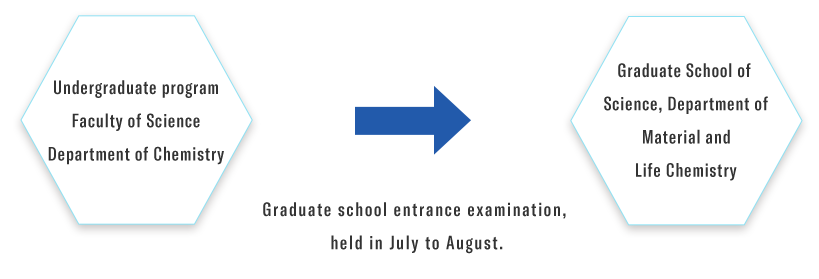
The progress of science and technology is remarkable, and if you aspire to work in leading chemical research after graduation, it is strongly recommended to continue your studies and research activities in graduate school. According to data compiled from 2019 to 2021, over 85% of chemistry department graduates have gone on to graduate school. This high rate of continuation is not only due to the eagerness of educators to cultivate the next generation of chemists and the motivation of students but also reflects societal demands, especially from public research institutions and industries that expect rich creativity and innovative thinking.
The graduate school of chemistry education exists as one area of the Faculty of Science. Its educational program is called the doctoral course, which consists of a master’s program and a doctoral program. Those who complete the master’s program are awarded a Master’s degree, and then they can undergo a doctoral thesis examination in the doctoral program, which takes about three years to obtain a Doctor of Science degree. The entrance examination for the doctoral program is held in July to August. Students take the exam in their fourth year of undergraduate study and enter graduate school the following year. The entrance exam is also open to students from other universities.
The creation of individuals with a “Doctorate” is one of the important missions of our graduate education. We aim to cultivate individuals who can actively conduct advanced academic research, and for this purpose, an excellent research system has been established. Additionally, you can apply for scholarships such as the Japan Society for the Promotion of Science Special Researcher Program and our university’s Fusion Frontier Fellowship Program to support future doctoral researchers.

